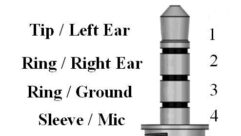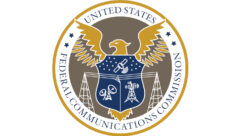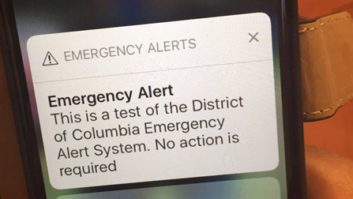The Federal Communications Commission appears poised to vote at its May 20 public meeting on a Report and Order for a mobile broadband wireless service using the 25 MHz of spectrum in the 2.3 GHz Wireless Communications Service band — spectrum that’s adjacent to that used by satellite radio.
In April, the commission asked interested parties to supplement the record (WT-07-293) with comments on its draft rules to protect and/or mitigate satellite radio from interference.
The vote on new rules would end a 13-year dispute between Sirius XM and various wireless companies, including Sprint Nextel, AT&T and Comcast, who are eager to roll out new services. These wireless companies and others purchased the spectrum at auction — for a total of $13.6 million, a relatively low price reflecting restrictions the commission established to protect satellite radio and other adjacent radio services — and the WCS licensees would like to use it. Initially the spectrum was to be used for fixed wireless use, but the need for more mobile broadband spectrum prompted the commission to propose the changes.
Sirius XM tells the agency in recent comments the draft rules “fails to protect satellite radio’s nearly 19 million subscribers from harmful interference” and characterizes the WCS licensees as “egregious spectrum warehousers” for not complying with a 2007 buildout deadline in hopes of eventually using the spectrum for mobile broadband, a charge refuted by a coalition of WCS licensees.
The satcaster recently submitted a study to the FCC by Dr. Theodore S. Rappaport, P.E., of Telisite Corp., that purports to show the proposed changes “would result in crippling interference to satellite radio operations in an unacceptable number of cases.”
The FCC has said the proposed rule changes include mechanisms for controlling interference between WCS and SDARS, such as power limits.
Several automakers, such as Nissan and Mercedes-Benz, as well as the Alliance of Automobile manufacturers, support Sirius XM in the fight. So does Ford, which wrote in its comments: “Ford has installed millions of satellite radios in our vehicles based on the reasonable expectation that the commission would not allow mobile WCS devices that may interfere with reception. In addition, Sirius XM has spent billions of dollars developing networks on this same understanding.”
Ford says the FCC should “require any WCS operator causing interference to satellite radio to promptly eliminate the interference or discontinue its operations. The commission should also adopt a streamlined process to ensure that consumers have an effective remedy if the situation requires government intervention.”
The American Trucking Associations is concerned that safeguards to protect SDARS subscribers remain inadequate, and recently told the commission that trucking companies and their drivers were among the first to embrace satellite radio.
“Trucking companies and their drivers work hard day in and day out to deliver the nation’s freight. They do not have time to be burdened with the obligation to initiate potentially complicated corrective action where interference occurs. Therefore, it is incumbent on the commission to provide adequate protection on the front end.”
House Members Fred Upton and Mike Rogers, both Republicans representing Michigan, wrote that the commission’s initial decision to allow fixed but prohibit mobile transmissions on these frequencies because of the interference concerns to satellite radio “was based upon a thorough record, and no subsequent engineering advances have solved those interference concerns.” Just as the auto industry is beginning to rebound from the recession, “we think it would be very unwise to substantially diminish the utility of a key vehicle feature such as satellite radio.”
Democratic representatives from New York Anthony Weiner and Gary Ackerman wrote to express their concern as well.












